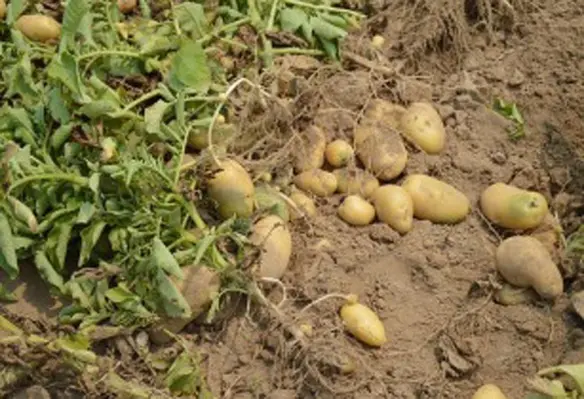Field trials conducted during the 2017 growing season in the UK have shown that the use of smart technology can help maximise crop yields
The trials involved 14 potato growers from ASDA’s Integrated Procurement & Logistics (IPL) fresh produce business, and sustainability experts WRAP. The project followed the potatoes from sowing in 2017 through to harvest and storage into 2018 and saw participating farms grow a combination of salad and fresh potato crops using Belana, Nectar and Maris Piper varieties, which were sold in ASDA stores.
The trials helped to increase yields by providing growers with critical information on the development of crops earlier than normal, this was achieved through greater monitoring and measurement throughout the season. Dedicated training was provided prior to planting on best practice in crop management techniques, and collaborative support was given throughout the trials.
The findings of the research have been published in a new report from WRAP, Improving performance in the fresh potato supply chain, along with a series of recommendations around standardising crop yield measurement in primary production.
WRAP’s study also found significant inconsistencies in the yields and performances of the participating growers; all of whom operate in the same region of the UK. The disparity was particularly noticeable between the highest and the lowest total crop yields.
While farm-specific factors such as weather and soil type will explain some differences, WRAP believes this variation points to widescale differences in grower productivity across the UK, and that the training and technology interventions trialled with ASDA IPL could help improve crop yields further afield, and maximise the volume of produce meeting client specifications for many more growers.
Peter Maddox, director at WRAP, “Improving crop yields without putting added stress on the environment is what everyone wants, and these trials show that closer monitoring and more standardised measurement can make that happen. We want more growers and their customers to look into the details of how this can be applied to their operations.”
The trials also found it was impossible to collect suitable data once the crop had left the field. This was due to differences in how yields were measured, and the lack of transparency over what happened to the crop before it was measured and whether it was combined with produce from other fields; or had defects removed.
The way the supply chain operates can further complicate this situation. Often last-minute unplanned changes to specifications cause additional produce to fall outside of specification; while conversely greater flexibility around specifications can mean more produce is included when there are instances of gluts or weather-related imperfections.
New standard for measuring crop performance and waste
WRAP is working to see what is possible in terms of standardising measurement more widely:
· Work is required to provide a common data standard and metrics for measuring the performance of commercial potato crops in the field. This would allow the industry to identify the causes of crop variation and continuously improve.
· A standard should operate across the entire industry and be used by all supply chains. In the case of potatoes, it should be adopted across different categories (fresh and processed), and could even inform decisions around other fresh produce crops.
· A standard should include protocols for collecting data during the season (canopy cover and test digs) and at the end of the season.




